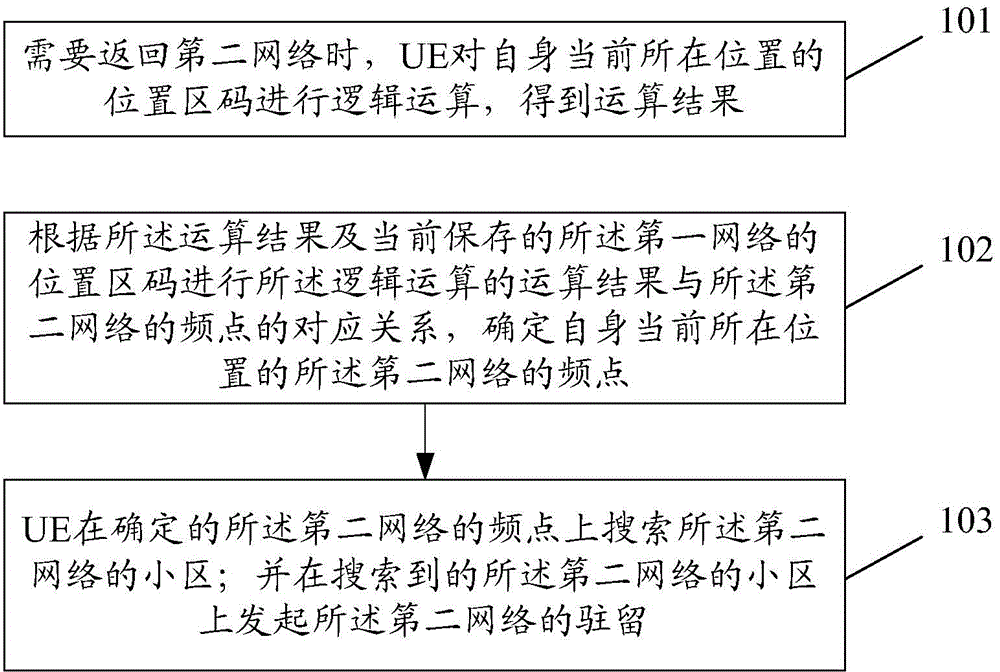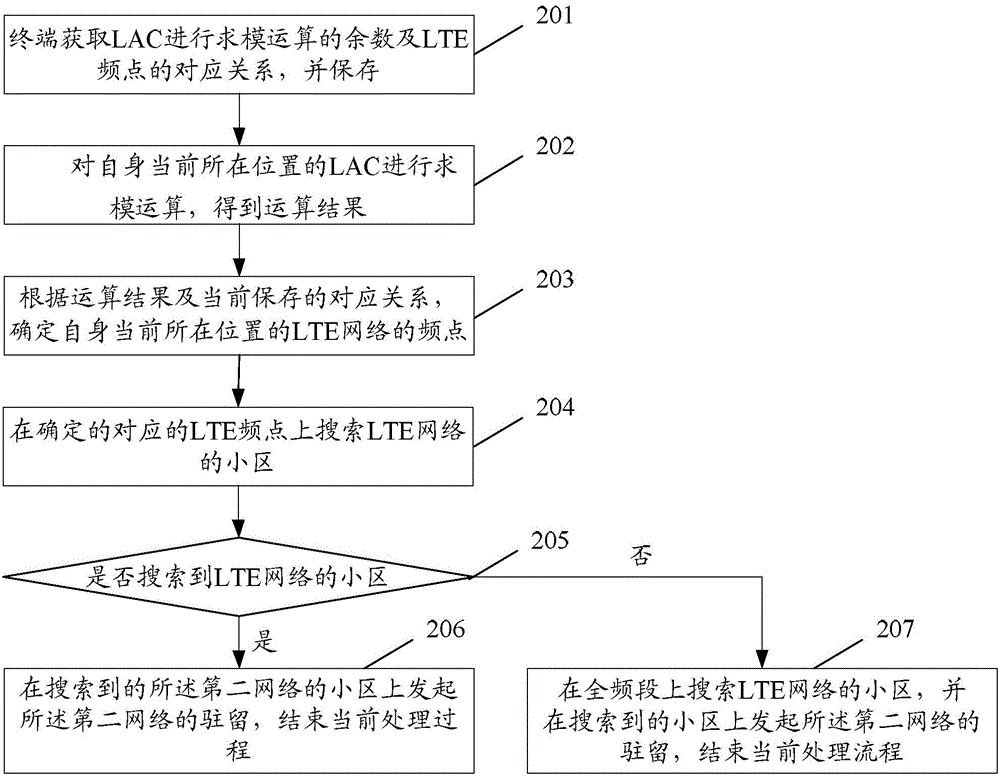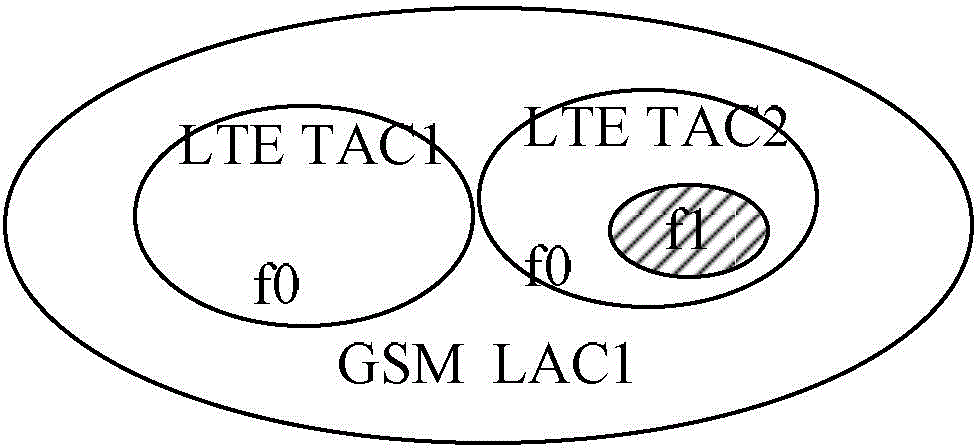Method for returning to network, and user equipment
A network and network technology, applied in the method and user equipment, and returned to the network field, can solve the problems of inability to configure 4G neighboring cells one by one, large delay, and reducing the success rate of LTE terminals.
- Summary
- Abstract
- Description
- Claims
- Application Information
AI Technical Summary
Problems solved by technology
Method used
Image
Examples
Embodiment 1
[0035] This embodiment returns the method of the network, such as figure 1 shown, including the following steps:
[0036] Step 101: When it is necessary to return to the second network, the UE residing in the first network performs a logical operation on the location area code of its current location to obtain the operation result;
[0037] Here, the logic operation satisfies: there is a corresponding relationship between the location area code of the first network after the logic operation and the frequency point of the second network; wherein, in actual application, according to the network deployment situation, determine the corresponding Logic operation, so that there is a corresponding relationship between the location area code of the first network and the frequency point of the second network. The logic operation may be a simple modulo operation, or a combination of several other relatively complex simple operations.
[0038] In actual application, the first network m...
Embodiment 2
[0056] The application scenario of this embodiment is: the UE is an LTE terminal, and the LTE terminal falls back to the 2G / 3G network and needs to return to the LTE network.
[0057] This embodiment returns the method of the network, such as figure 2 shown, including the following steps:
[0058] Step 201: The LTE terminal acquires the remainder of the modulo operation of the LAC of the 2G / 3G network and the corresponding relationship between the LTE frequency points, and saves it, and then executes step 202;
[0059] Here, the smallest coverage unit of the LTE network is a cell, and several cells form a tracking area (TrackingArea), and have a common TAC, surrounded by the coverage of tracking areas corresponding to other TACs. Generally, several tracking areas covered continuously will have one or several frequency points as basic coverage, such as image 3 shown. For hotspot areas, different frequency coverage can also be used to supplement heat, such as image 3 midd...
Embodiment 3
[0080] To implement the method in Embodiment 1, this embodiment provides a UE, such as Figure 4 As shown, the UE includes: an operation unit 41, a determination unit 42, a search unit 43, and a camping initiation unit 44; wherein,
[0081] The computing unit 41 is configured to perform a logical operation on the location area code of the current location of the UE when it is necessary to return to the second network to obtain an operation result;
[0082] The determining unit 42 is configured to determine the UE's current the frequency point of the second network at the location;
[0083] A search unit 43, configured to search for a cell of the second network on the determined frequency point of the second network;
[0084] A camping initiating unit 44, configured to initiate camping of the second network on the searched cell of the second network.
[0085] Wherein, the logical operation satisfies: there is a corresponding relationship between the location area code of the f...
PUM
 Login to View More
Login to View More Abstract
Description
Claims
Application Information
 Login to View More
Login to View More - R&D
- Intellectual Property
- Life Sciences
- Materials
- Tech Scout
- Unparalleled Data Quality
- Higher Quality Content
- 60% Fewer Hallucinations
Browse by: Latest US Patents, China's latest patents, Technical Efficacy Thesaurus, Application Domain, Technology Topic, Popular Technical Reports.
© 2025 PatSnap. All rights reserved.Legal|Privacy policy|Modern Slavery Act Transparency Statement|Sitemap|About US| Contact US: help@patsnap.com



